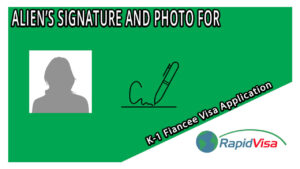As we've said before, K-1 fiance visa denial rates are very low -- even lower if you hire RapidVisa to help. About 95% of all applications are approved, whereas 99.7% of RapidVisa's customers are approved. Denials are few and far between. But they do happen.
What Reasons Would Get a K-1 Visa Denied?
Here are some of the most common denial reasons we see out there. Reasons for potential denials are generally laid out in the Immigration & Nationality Act of 1952. These are the most common reasons we see, and are based only on our experience.
1. Insufficient Evidence of Bona Fide Relationship
Determining whether or not your relationship is legitimate is almost completely arbitrary, and based on the consular officer you get. Sometimes, whether or not your relationship is real or not, there are subtle biases an officer may have. These could be anything from your age difference to what vibe they feel during the interview.
Some items that may raise a red flag as to your relationship's legitimacy:
- Engaged a very short time after meeting
- Huge age difference
- Different religions
- Severe difference in culture
- No common spoken language
- Very little physical time together
- Poor interview
The best way to avoid the 'bona fide' issue is to legitimately have a relationship. Also, keep good evidence during your engagement period, take pictures, get to know your fiance, build a great petition (use RapidVisa - we have a 99.7% approval rating), and have a great interview.
2. Fraud Via Misrepresentation
It never ceases to amaze us how many people think they can fool the government and put their futures at risk by misrepresenting themselves in a fiance visa application.
As the law states:
In general.-Any alien who, by fraud or willfully misrepresenting a material fact, seeks to procure (or has sought to procure or has procured) a visa, other documentation, or admission into the United States or other benefit provided under this Act is inadmissible. - § 212(a)(6)(C)(i) of the Immigration and Nationality Act
Here are some examples we've seen of fraud and misrepresentation:
- Photoshopping or fake photos
- Falsified affidavits from friends and family
- Inconsistencies between application and evidence
- Applying for the wrong type of visa to intentionally circumvent the immigration process
- Not disclosing medical or criminal history
- Falsifying income
3. Unqualified
What you'd think would be the most obvious reason to avoid a denial is one of the most frequent causes - Not being qualified in the first place. Often times, this snafu occurs when the applicant thinks they meet a certain qualification but it turns out they don't. For a list of fiance visa U.S. requirements.
Here are a few examples we see related to this one:
- 2 year meeting requirement
Applicant starts the petition qualified, but takes their time filling out the information, and by the time they file it 6 months later, they find themselves out of the 2 year meeting requirement. Keep in mind the 2 year meeting requirement is from the date you file your petition with the USCIS. - Income requirement
Either the petitioner's income changes for the worst during the application, or the numbers just don't add up via the evidence and the income requirement can't be met. See our income requirement calculator. - Free to marry requirement
Petitioner or applicant are in the process of a divorce when the application is submitted, however divorce isn't finalized. If you're already married, this disqualifies you from being eligible to marry.
Already denied? Here are some things you could do. If you have any questions about the process, give us a call at 1 (800) 872-1458.


